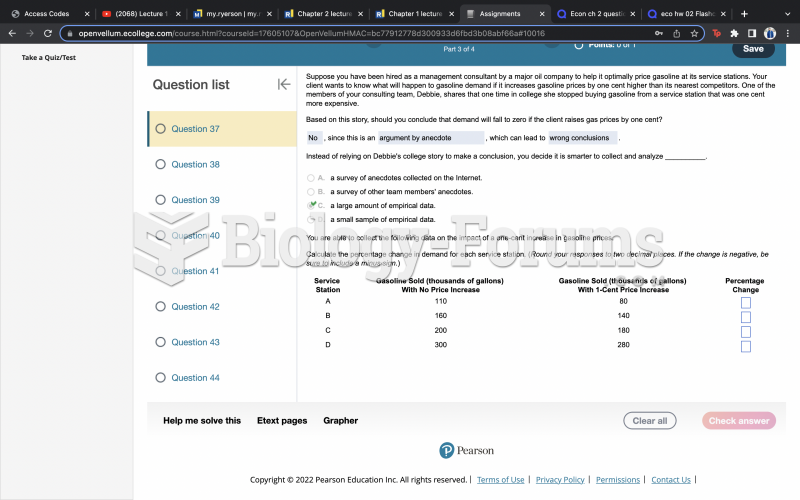|
|
|
Disorders that may affect pharmacodynamics include genetic mutations, malnutrition, thyrotoxicosis, myasthenia gravis, Parkinson's disease, and certain forms of insulin-resistant diabetes mellitus.
Thyroid conditions cause a higher risk of fibromyalgia and chronic fatigue syndrome.
Green tea is able to stop the scent of garlic or onion from causing bad breath.
Bacteria have flourished on the earth for over three billion years. They were the first life forms on the planet.
Though newer “smart” infusion pumps are increasingly becoming more sophisticated, they cannot prevent all programming and administration errors. Health care professionals that use smart infusion pumps must still practice the rights of medication administration and have other professionals double-check all high-risk infusions.







